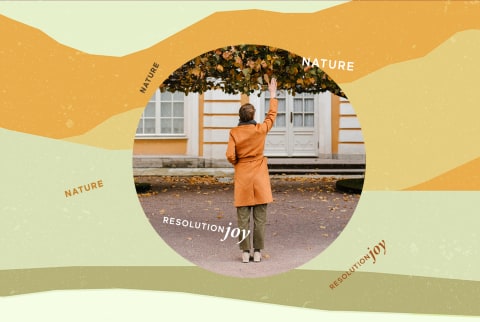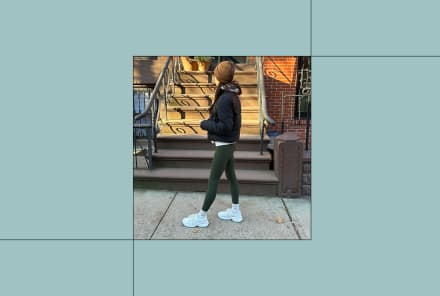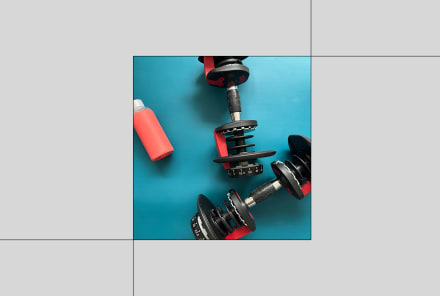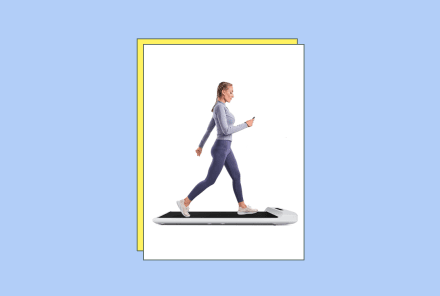Advertisement
These Micro-Moments In Nature Are Your Ticket To A More Joyful Winter


Last year, our world became smaller. Instead of commuting to the other side of town, we walked to the other side of our homes. Neighborhood strolls replaced grand vacations, and large family gatherings shrunk to the size of a computer screen. This downsizing wasn't all bad. In the end, it reminded many of us of the beauty and importance of nearby nature.
The joy to be found in local nature.
Despite travel restrictions, research from around the world is finding that people are now spending more time outdoors than ever—and it's paying dividends for mental health.
A recent study out of Austria found that locals reported feeling happier and less alone when spending time outdoors in 2020. In Tokyo, getting outside in green space (or simply looking at it through the window) was shown to increase self-esteem, life satisfaction, and subjective happiness during the quarantine. And two research teams out of the University of Vermont have found that COVID has made more people in the state seek out nature experiences and enjoy their corresponding benefits on mental health and well-being.
"My hope is that these are the kind of gateway experiences that get people more engaged with their local nature," Brendan Fisher, Ph.D., a UVM researcher, previously told mbg of these findings.
Therein lies one bright silver linings of the pandemic: We realized that we don't have to fly across the world to have restorative experiences in nature, the types that boost our mood and leave us feeling relaxed. We can have them in our own backyards for much less money (and fewer carbon emissions, at that).
A growing body of research supports the importance of everyday nature exposure on mental health: We now know that taking a walk through any natural green space can decrease rumination, a contributor to depression and anxiety disorder, compared to one through an urban environment. And as little as two hours of nature time a week1 is enough to promote a more positive outlook.
How to engage with nearby nature this winter and beyond.
Any patch of nature can be healing, once we give it our full attention. Here are some ways to stick with a mindful nature practice in your neighborhood in the months ahead. Use them on your next long walk, or just while running errands. If you live in a chilly clime, not to worry: Researchers have found that getting outside is still beneficial—even when it's cold outside. So bundle up (here's your layering plan), and get ready to foster a new appreciation for the world that's always been around you:
Keep your phone in your pocket.
We can't be wowed by nature if our screens already have our full attention. Research confirms that using electronics in nature negates some of the mentally restorative benefits that the outdoors has to offer. Treat your next green excursion like a dinner date with a friend or partner: Put the phone away for the sake of being in the moment and enjoying the company.
Slow down and engage the senses.
Popular nature therapies put a heavy emphasis on moving slowly and engaging all five senses. For example, shinrin-yoku (forest bathing) is the Japanese method of fully immersing oneself in a forest environment using a series of sensory "invitations." The practice has been shown to reduce stress and anxiety2, as well as promote a stronger immune response3 and deeper sleep4.
Those who don't have access to a sprawling forest can try these simple invitations on their next neighborhood walk. The slower you go, the more details you'll notice:
- Feel a leaf, your bare feet in the grass
- Look at the pattern of the tree's bare branches, the clouds above, the grass or plants peeking through sidewalk cracks
- Listen for birds, wind, the loudest natural noise you can hear, the faintest natural noise you can hear
- Smell a flower, a patch of dirt, the grass
- Taste the air after a rain or snow
Notice small changes.
Once you start to pick up on the small details of your neighborhood nature, you'll see that they're constantly changing. As the season goes on, the crisp smell in the air will soften, new life will take to the branches, and the birds will change their tune. Therein lies one of nature's many lessons for us: Even during tough and heavy times, life moves on without skipping a beat. Make a point to return to one green area in your neighborhood multiple times throughout the season to really get to know it and observe these changes in action.
Take nature breaks indoors.
If getting outside isn't in the cards, pulling a chair up to your window to take a peek at a tree, a patch of grass, or the clouds is the next best thing. Or, if you have houseplants, sit in their presence for a moment. Touch their leaves, smell their soil, and keep an eye out for any new growth. As you take breaks throughout the day, swap out mindless phone scrolls with these more joy-inducing micro nature moments.
Reflect on your mood afterward.
When you come back inside after a mindful walk through the park or return to your desk after a moment with your plants, tune in to how you feel. Take a second to scan the body and notice where any stress or tension has lifted. The more we connect the dots on how nature time makes us feel happier, more alert, or more productive, the more likely we'll be to take it—in forms big and small, near and far.
Watch Next
Enjoy some of our favorite clips from classes
Enjoy some of our favorite clips from classes
What Is Meditation?
Mindfulness/Spirituality | Light Watkins
Box Breathing
Mindfulness/Spirituality | Gwen Dittmar
What Breathwork Can Address
Mindfulness/Spirituality | Gwen Dittmar
The 8 Limbs of Yoga - What is Asana?
Yoga | Caley Alyssa
Two Standing Postures to Open Up Tight Hips
Yoga | Caley Alyssa
How Plants Can Optimize Athletic Performance
Nutrition | Rich Roll
What to Eat Before a Workout
Nutrition | Rich Roll
How Ayurveda Helps Us Navigate Modern Life
Nutrition | Sahara Rose
Messages About Love & Relationships
Love & Relationships | Esther Perel
Love Languages
Love & Relationships | Esther Perel

















